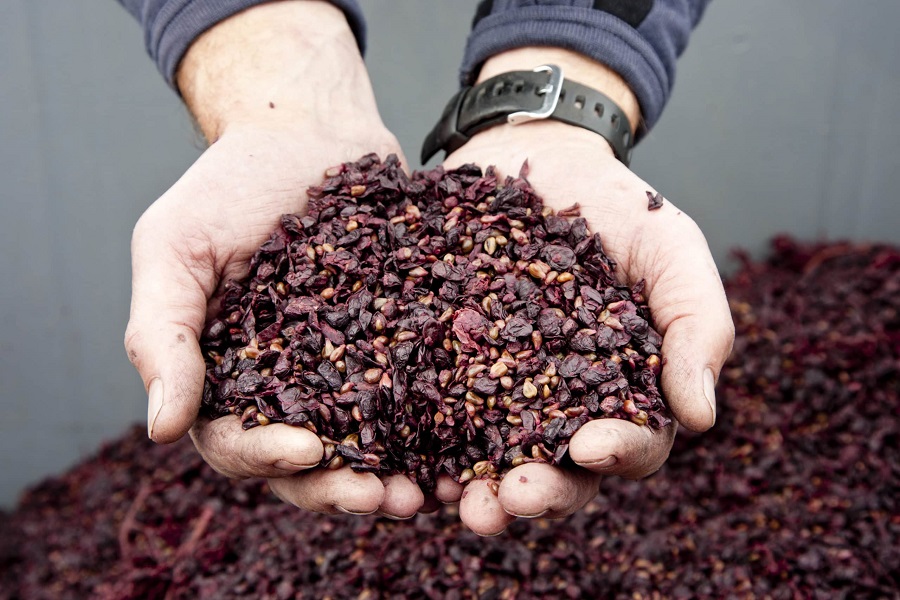From grapes to masks
BIOSA Technologies creates first Canadian-made mask material ― from, of all things, grape waste
BY NOW, MANY of us barely think about our masks. They have become automatic and banal, and they are everywhere — including the trash bin, with one report estimating that more than 1.5 billion of the masks used in 2020 will end up as ocean pollution.
But BIOSA Technologies Ltd., a biotech company that recently established a presence in London, believes it has a better way to mitigate mask waste and navigate supply chain issues, making a “near impenetrable mask filtration material” out of byproducts from Ontario’s wine industry.
Story Continues Below
BIOSA has developed a process to use grape pomace — the solid remains of the grape after it has been pressed to make wine — to create a filtration material that they say is 99.99 per cent antibacterial, meeting the standard required to be used in medical-grade N95 masks. The material is also compostable and re-uses a byproduct that would have otherwise risked damaging the ecosystems around where it was being disposed.
“Making the best use of these potent materials within waste, we take something that is damaging to the environment and actively remove the antioxidants from the waste materials” says Lori Steuart, head of marketing at BIOSA. “Suddenly, we are disposing of that waste in a way that is no longer harmful and has been utilized to its fullest potential to be helpful.”
Story Continues Below
The company says it is in the process of building out their Consortium Court production facility, where the masks will eventually be produced. The new fabric is said to be the first of its kind to be made in Canada — ideal in a world of supply chain issues.
“This new material acts as a beacon of hope for our healthcare workers and our planet as we reflect on the effects that this pandemic has had on the supply chain and how our integral healthcare workers have had to reuse masks that are intended for single use,” writes TechAlliance.
The company announced in August that they were planning to build a 4,000 square foot plant in London specifically to produce PPE. “Through this investment, we can have an even greater impact through our advanced PPE material, as well as pursue novel applications of it for HVAC filtration in schools and hospitals. We’re excited to see where the technology can go,” said the company’s CEO Nichola Ledra, at the time.
Story Continues Below
Funding for the research and development of the new fabric came largely from the Ontario Together Fund, a provincial fund meant to support innovation and development of PPE.
“The Ontario Together Funding has allowed us to get to this point of developing our research capabilities and procuring equipment,” says Steuart. “We will use that to springboard to the next level, doubling our growth and hiring more people for both technical business development roles.” ![]() Kieran Delamont
Kieran Delamont

